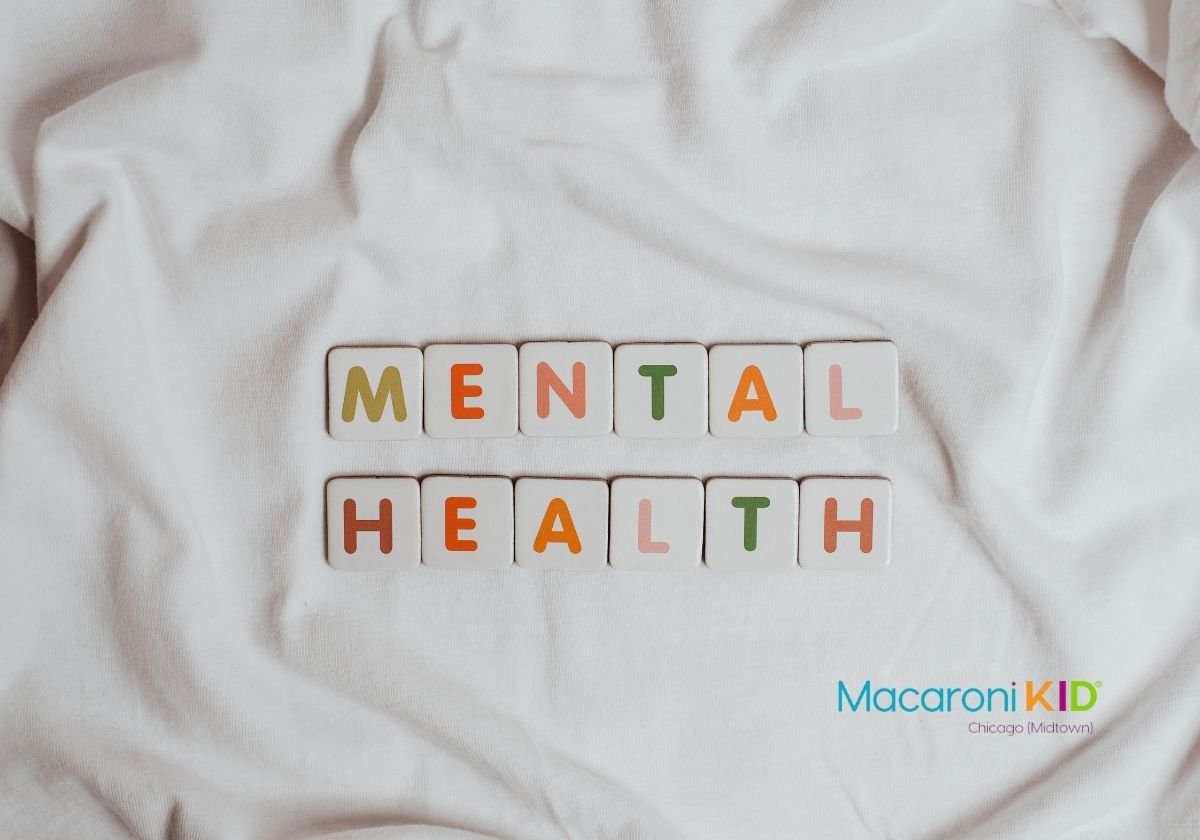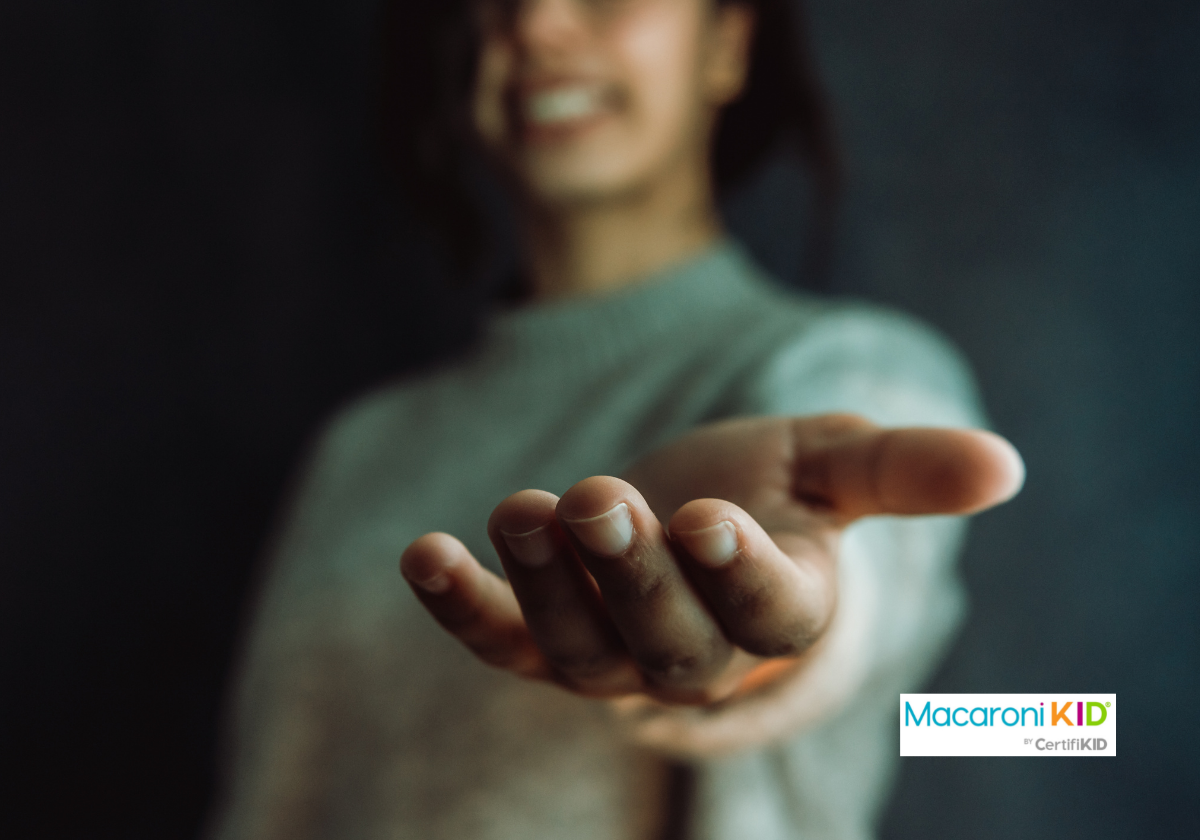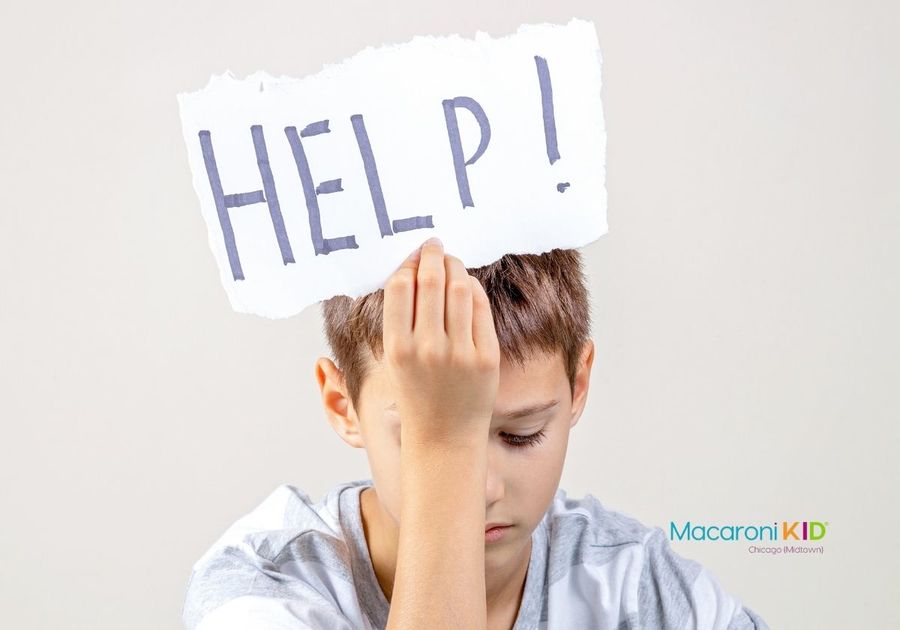Ask yourself these questions:
Have you ever found yourself striking up a conversation with a fellow parent about your child's pediatrician or routine medical appointments? Do you discuss your own check-ups, doctors, and medical concerns with friends? I know that as a parent, I have pondered rashes, runny noses, and even the color of their poop with other parents and friends. Personally, I have talked about my post-partum recovery and my mammogram (and how it is overdue) with people too.
Why is it that we will freely discuss physical health with people, even relative strangers, but the mental health of our friends and ourselves is rarely even mentioned?
Now, how about this:
Have you ever thought, "oh man, don't kids have it so good?" and then find yourself daydreaming about our own "good old days"? Carefree moments had as kids like the feeling of riding a bike with no specific destination. Hanging out with friends and doing nothing at all but loving every minute. I admit I am guilty of this, but as my own children get older, I am reminded of the moments I experienced in my tweens and teens that were stressful, frightening, and gave me a healthy dose of anxiety.
It's easy to assume that since kids aren't dealing with the same experiences adults face, they are living a stress-free or low-stress existence, and that is just not fair to believe. Children today are facing the same stresses that existed when we were growing up and a whole host of others that are foreign to us. I admit I have no experience in dealing with stress related to social media or technology that kids experience now, but stress related to school, friendships, family life, and planning for my own post-high school future - that I know well.
So what's my point?
As a society, we often focus on the benefits of caring for our physical well-being. Balanced eating, quality sleep, opportunities for play, and regular exercise allow us to feel strong and healthy. Unfortunately, we often fail to talk about and focus on our mental well-being, and as NAMI will tell you, not only do we all have "physical health", we all have "mental health" too - and just like we have to keep working to be physically strong, we have to keep exercising and caring for our mental strength too.
Exercising, resting, and eating well are all ways to help support your mental well-being, but there is another key support that we remove from the picture by not discussing mental health, especially with our kids. The ability to have a person, or persons, with whom you can talk through your feelings and experiences with is of high importance for all of us, but especially for our kids. Many are just learning how to identify different emotions as they hit new milestones and experiences, and having a trusted adult is vital for a child's mental well-being.
In fact, one in six children ages 7 to 16 experience some kind of mental health disorder, according to the National Alliance of Mental Illness, or NAMI.
 |
How To Start The Conversation:
Now is the best time to start talking to our kids about their mental well-being. My best advice for having a conversation with kids is to:
1) Ask an open-ended question that they can't answer with a simple one-word answer like "Yes," "No," or "Fine."
2) After you ask the question, be quiet while they do the talking and take cues for any follow-up from them
3) Time it right. Don't try to start a conversation in the middle of an emotional moment or when their focus is on something else. I find my best conversations with my own kids happen when we are going for a walk or in the quiet moments before bed.
4) Be willing and prepared to answer the same questions!
Here are some suggestions to get the conversations started:
- "What was the best thing that happened today?"
- "What makes you super happy?"
- "What scares you the most?"
- "What is your favorite place at home?"
- "Who are your friends, and what do you enjoy doing most with them?"
- "What is something that happened today that you wish had gone differently?"
- "What is your favorite season and why?"
- "What is something that makes you feel angry?"
- "When you feel (angry/scared/nervous), how do you like to work through it?"
- "Pick three words to describe yourself."
- "Tell me about something that made you feel embarrassed?"
When a child has a solid support system of friends, family, and others who care about them and are open to talking about mental wellness, the outlook can be much brighter.
Our children need to know: They are not alone.
 Banana Images via Canva Banana Images via Canva |
List of mental health resources and support organizations
In addition to your primary physician or pediatrician, you or your child can reach out to these resources for more information and support. In a mental health emergency that places a person's physical well-being at risk, please call 911 or go to your local emergency department for immediate assistance.
Black Mental Health Alliance
BMHA provides over 600 referrals to individuals seeking licensed, culturally competent clinicians for behavioral and mental health treatment.
Chicago Dads Group
Chicago Dads Group is a diverse community of fathers who take an active role in their children’s lives. They provide an online meetup group to bring fathers together in person.
Child Therapy Chicago
We are children's issues experts who help children make meaning of their experiences and work through what troubles them.
We also help parents better understand their children. Offices are located in Lakeview, Downtown Northbrook and Downtown Naperville.
Crisis Text Line
The Crisis Text Line serves anyone in any type of crisis, connecting them with a crisis counselor who can provide support and information.
Text “HOME” or "HELLO" to 741741 to begin a chat with a counselor
Disaster Distress Helpline
The disaster distress helpline provides immediate crisis counseling for people who are experiencing emotional distress related to any natural or human-caused disaster. The helpline is free, multilingual, confidential, and available 24 hours a day, seven days a week.
Call or text 800-985-5990
DomesticShelters.org
Provides a list of domestic abuse shelters around the United States.
FORGE
FORGE is a national transgender anti-violence organization.
Healthy Chicago Babies
At Chicago Department of Public Health, the goal is to prioritize the health and wellness of Chicago's residents. This resource list was created with local families in mind to help them find the resources and support they need to be as healthy as possible.
IMAlive
This nonprofit's focus is suicide intervention, prevention, awareness, and education.
Lifeline Chat
The Lifeline is a free, confidential online crisis service that is available to everyone 24 hours a day, seven days a week. The Lifeline connects people to the nearest crisis center in the Lifeline national network. These centers provide crisis counseling and mental health referrals.
NAMI Chicago
NAMI Chicago offers two excellent resources - one designed specifically for youth and a separate one for adults & caregivers of children. Since 1979, NAMI Chicago has fought for families and individuals impacted by mental health conditions. We promote community wellness, break down barriers to mental health care and provide support and expertise for families, professionals and individuals in Chicago and beyond.
National Center for Transgender Equality
The nation's leading social justice advocacy organization winning life-saving change for transgender people.
Call 202-642-4542
National Coalition of Anti-Violence Programs (NCAVP)
A national network of service organizations working with LGBTQ people who have been victims of domestic violence
National Suicide Prevention Lifeline
Call 800-273-TALK (8255); En Español 888-628-9454; After July 16, 2022, dial 988
On Our Sleeves
On Our Sleeves is the national movement to break stigmas around children’s mental health. No family should struggle alone on their journey. Our mission is to provide free mental health educational resources to every community in America to educate families and empower advocates. We also support access to services by connecting families to trusted local resources.
Project Semicolon
Project Semicolon is an anti-suicide movement and a way for people to show support for those dealing with mental health and suicide. The semicolon itself is used to link two thoughts together in writing. Project Semicolon explains it as "when an author could've chosen to end their sentence, but chose not to. The author is you, and the sentence is your life." This led to the group's slogan "Your Story Isn't Over."
SAMHSA’s National Helpline
SAMHSA offers referrals for substance abuse and mental health treatment 24/7, 365.
Call 800-662-HELP (4357)
Therapy for Black Girls
Therapy for Black Girls is an online space dedicated to encouraging the mental wellness of Black women and girls.
The Trevor Project
The Trevor Project offers suicide prevention services for LGBTQ+ youth.
Call 866-488-7386
YWCA Metro Chicago
YWCA Metropolitan Chicago’s Mental Health Specialist provides on-site support for classroom and behavior management utilizing observations and consultation support.
To listen to the recording of a live discussion about pediatric mental health - please visit NWCP's Instagram page



